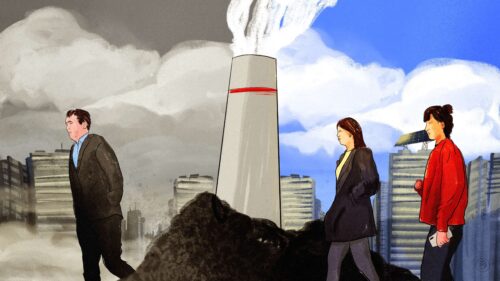China shows signs of backing OPEC’s pro-Russia oil production cut
In this week’s Russia-China update: The PRC demonstrates more “pro-Russia neutrality,” and Elon Musk says Beijing pressured him to drop Starlink coverage for Ukraine.

On October 5, the Organization for Petroleum Exporting Countries (OPEC), Russia, and a handful of other oil-producing countries agreed to cut production. Many experts believe the cut will raise global inflation, increase the likelihood of a recession, and boost Russian crude export earnings. The cut is placing serious, perhaps unprecedented, strains on the U.S.-Saudi relationship, but also raising import costs in oil-consuming countries, most of which are lower- and middle-income developing countries. While China has largely kept silent amid OPEC’s maneuvering despite being the world’s largest oil importer, Beijing has not publicly expressed disapproval and even shows some signs of backing the cuts.
Beijing’s initial position on the production cut has been muted. The Ministry of Foreign Affairs has not (yet) issued a statement on OPEC’s decision nor has the National Energy Administration issued any substantive update. (It’s worth noting, however, that much of China was away from work because of the National Day holiday from October 1 to 8, and the policymaking apparatus is in slow-motion ahead of the upcoming 20th Congress of the Chinese Communist Party.)
Despite the fact that China will have to deal with amplified inflationary pressures amid an economic slowdown, Party organs are claiming that the cut will harm the United States, describing the cut as a legitimate “counterattack against the United States and the West,” and citing a Saudi official who scolds the West for neglecting “energy poverty” in the developing world. (OPEC and Russia’s cutting of oil production will lift energy prices and increase world energy poverty, especially in the developing world.)
While electric vehicles comprise about a quarter of new vehicle purchases in China, the vehicle fleet is still overwhelmingly gasoline and diesel powered. Rising energy prices will weigh on China’s GDP growth, but Beijing seems to be taking no public action to protest OPEC’s production cuts.
The Chinese Foreign Ministry would rather not discuss Ukraine
On October 9, at the regular Chinese Foreign Ministry briefing (in English, Chinese), a journalist from Russian state media outlet TASS asked about the Crimean bridge explosion, to which the spokesperson replied: “We have taken note of relevant reports.”
A question from Reuters about Russian retaliatory strikes on civilian targets in Kyiv got the following response: “We noted relevant reports. We hope the situation will deescalate as soon as possible.”
Beijing expressed disapproval of Starlink in Ukraine
In an interview with the Financial Times, Tesla and SpaceX boss Elon Musk said that Beijing clearly disapproved of his provision of the Starlink satellite communications system to Ukrainian forces. Starlink suffered outages in Ukraine over the past week, although service has been restored as of this writing.
Musk’s credibility, especially with regards to Russia and China, has been the subject of some scrutiny recently.






